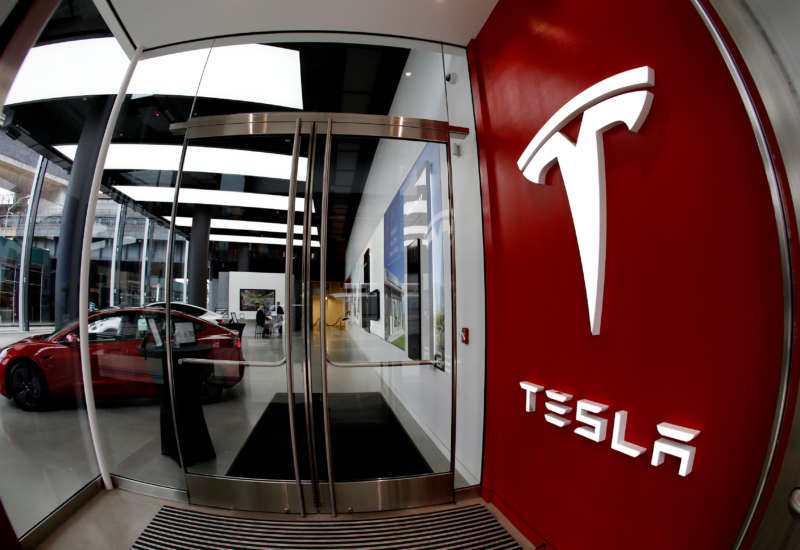Tesla will likely owe $0 in federal income taxes this year, despite reporting billions of dollars of profits to its shareholders for 2021, according to recent Securities and Exchange Commission (SEC) filings.
As first reported by CNN, Tesla has said that its U.S. operations lost $130 million pre-taxes – meaning that the company will likely be able to avoid paying federal income taxes on its record profits of $5.5 billion that it reported to shareholders for 2021.
The company, which is valued at over $900 billion, claimed that its profits came from overseas, even though 45 percent of its revenue last year came from sales in the U.S.
It’s unclear whether the vast majority of the company’s profits actually came from overseas, as the company reported. Matt Gardner, a senior fellow at the Institute on Taxation and Economic Policy (ITEP), says that Tesla is too young and hasn’t turned a profit for long enough to be able to tell whether or not the company is structured in a way that enables it to exploit offshore tax loopholes, as many corporations do.
However, parts of the company’s structure – like its three subsidiaries in the Cayman Islands – are “a definite eyebrow raiser from a tax avoidance perspective,” Gardner told Truthout. “It suggests to me that the company might be trying to shift its income offshore.”
It’s possible that the reason why the company is claiming that overseas profits are much more of a boon than U.S. profits is because it’s true; the company did indeed make a large portion of its profits from China last year. But Tesla could also be making this claim falsely because it gives the company the ability to shift those profits overseas, where they may be subject to lower tax rates.
“That’s a completely plausible alternative reason why they’d say, ‘we’ll never turn a profit in the U.S.’” Gardner said. “But the quiet part of that statement – ‘we’ll never turn a profit in the U.S.’ – is ‘because we know we’re always going to shift our profits somewhere else.’”
Purposefully structuring its finances and corporation in this way would make Tesla’s filings similar to that of the “dozens of other companies that I’ve seen making similar disclosures with a similarly suspicious allocation of income between the US and every other nation,” Gardner said. However, Gardner also emphasized that there’s no way to know whether Tesla is doing this for sure without getting further confirmation from its tax filings or other details.
Exploiting overseas tax loopholes in order to dodge taxes is an incredibly common practice among U.S. corporations. According to a 2014 report, the U.S. loses out on $90 billion a year in income taxes as a result of these loopholes.
Progressive lawmakers say that the fact that a corporate giant like Tesla can avoid paying federal taxes domestically is a reason to reform the U.S. tax code. “Tesla and other giant corporations have long used scams and loopholes to help them get out of paying taxes — that has to stop,” Sen. Elizabeth Warren (D-Massachusetts) told CNN. “Democrats are working to end Republican tax cuts for corporations shifting profits and jobs overseas.”
Tesla joins a number of other huge corporations that will be able to dodge taxes this year despite posting sky-high profits. In a report published last week, Gardner wrote that Amazon will only pay an effective tax rate of 6.1 percent for 2021, essentially dodging $5.2 billion in federal income taxes.
Tesla’s filings come as the company is facing a lawsuit filed by the state of California. The state alleges that workers at the company’s California manufacturing plant face rampant racism at work.


